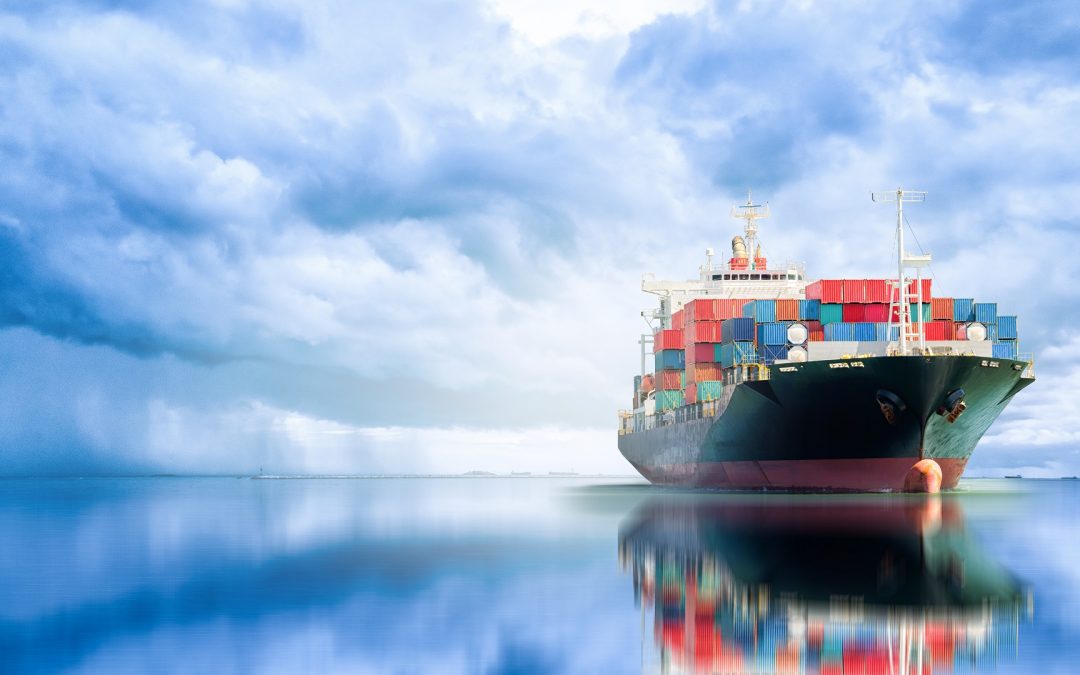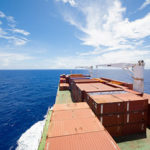The global economy relies on shipping, more than 80% of the world’s traded goods are transported by ships. ING’s Shipping team provides finance to top-tier international ship owners who own vessels across the dry cargo, tanker (including gas) and container segments. Our aim is to drive sustainability in the shipping sector by engaging with our clients, financing their transitions to net zero and collaborating with key stakeholders to enable this transition. Our participation in regulatory and industry bodies also means we can play a part in driving wider change through multi-stakeholder collaboration and dialogue.
The industry’s robust climate alignment framework
The shipping industry is unique in the fact that it has a global regulator: the International Maritime Organisation (IMO), a specialised agency of the United Nations. It has set an industry target of reaching net zero by or around 2050, with intermediate targets in the form of checkpoints for 2030 and 2040. The IMO is progressively implementing a series of regulatory measures that would enable shipping to achieve these targets.
The Poseidon Principles are a global framework for responsible ship finance which has produced a linear representation of IMO’s targets to create decarbonisation trajectories. ING and the other 34 signatories to the Principles report their shipping portfolio alignment against these trajectories through the annual disclosure report published in December each year.
For the 2024 disclosure report, ING’s portfolio climate alignment score was the 3rd most aligned of the signatories. Stephen Fewster, global head of Shipping, explains:
Our target market has always been the top tier ship owners, which we determine by looking at factors like the size of the company, its financial state, what the management is like, and how efficiently they operate their vessels – this last point being particularly important. Whilst modern vessels tend to be less emission intensive by design, prudent operations and investments go a long way in reducing the carbon footprint of existing vessels and extending their operating lives.
Multi-pronged approach to decarbonization
Three main levers are available to ship owners to reduce emission from their ships:
- technical measures, which includes energy saving technologies and retrofits
- operational measures such as effective route planning and reduction of speed
- low or zero carbon alternative fuels, such as bio-methane and green methanol
ING aims to support its shipping clients in their efforts to reduce their emissions by providing financing solutions for retrofitting of energy saving technologies and engine retrofits for alternative fuel capability. More importantly, we recognise that the scaling up of alternative fuels for shipping is critical for accelerating the transition to a decarbonised shipping sector. This is a more complex challenge involving multiple stakeholders across the value chain including ship owners, charterers, energy producers, and regulators amongst others.
Tackling this requires collaboration and alignment of interests between a diverse group of stakeholders including financiers, and ING plays an active role in supporting the shipping industry’s efforts in accelerating decarbonisation efforts through its participation in regulatory and industry bodies and forums.
ING is the only commercial bank in the Silk Alliance, a green corridor initiative set up by the Lloyd’s Register Maritime Decarbonisation Hub, in which a group of industry stakeholders work to together to aggregate a demand signal for green fuels that would incentivise fuel procedures to scale up production of such fuels.
Developments in the horizons to keep an eye on
Regulations will continue to be a key driver in the coming years
The Marine Environmental Protection Committee (MEPC), is set to meet in April 2025 to discuss the introduction of an economic measure, such as GHG levy, aimed at achieving cost parity between conventional and greener alternative fuel over time. A version of this already exists in the EU under the Emissions Trading System (ETS),with further regulations in the form of FuelEU Maritime taking effect from 2026.
Geopolitical events can have an impact
When trade flows shift, there could be knock-on effects on the shipping industry. At the end of 2023, when Houthi militants in the Red Sea and Gulf of Aden targeted commercial ships, the industry had to avoid the Suez Canal and instead circumnavigate Africa. Similarly, the trade landscape changed after Russia’s invasion of Ukraine – leading to a significant rise in tonne mile. Rico Luman, transport & logistics economist at ING Research: “The current Trump administration’s policies and reactions could result in re-drawing of trade relationships and associated supply chains and shipping routes. Trade could shift further to other countries, creating indirect trade routes and longer supply lines. And for example, the ramp up in the domestic production of natural gas in the US, could result in an increase in LNG exports to consumers across the globe.” Such disruptions can make it more challenging for ship owners and operators to implement their emission reduction strategies.
Consumer choices will nudge the container shipping sector to decarbonise faster
We anticipate that, as the effects of climate change become increasingly apparent, both shippers of consumer goods and end customers will demand lower carbon footprint for their goods. Coalitions such as ZEMBA (Zero Emission Maritime Buyers Alliance) have set targets for zero emission shipping of their products before 2050. Additionally, the relatively fixed trading pattern of containers vessels are conducive for setting up alternative fuel supply chains.
Looking ahead – more opportunities than challenges
Our outlook for sustainable shipping finance is broadly positive: Stephen said “The good thing is that shipping is not going to disappear. We will continue to rely on it for global transportation. Our industry, unlike others, is fortunate to have a global regulator that can help drive change.
Our aim is to be the catalyst to enable the industry to decarbonize. To this end ING has embarked on a “Net Zero Advocacy project” for shipping using an established systemic change framework. Through the framework we have better assessed what we need to do in our business, beyond our business, and in our advocacy as our part in mobilizing change. This means that, amongst other things, we will look to support our clients in retrofitting existing vessels, in their investment in dual fuel vessels and enhance our risk appetite to finance new types of assets such as CO2 carriers which will be crucial for the global energy transition.
Shipping is no stranger to transformation, having moved from wind propulsion to steam and eventually to internal combustion engines within a century. So the foundations are very much there for the industry to successfully manage the energy transition that we are in the midst of – the biggest question is the pace at which the fuel mix of the future will take shape and scale up. I’m confident we’ll arrive at that answer soon enough.”
Source: ING Bank N.V.






